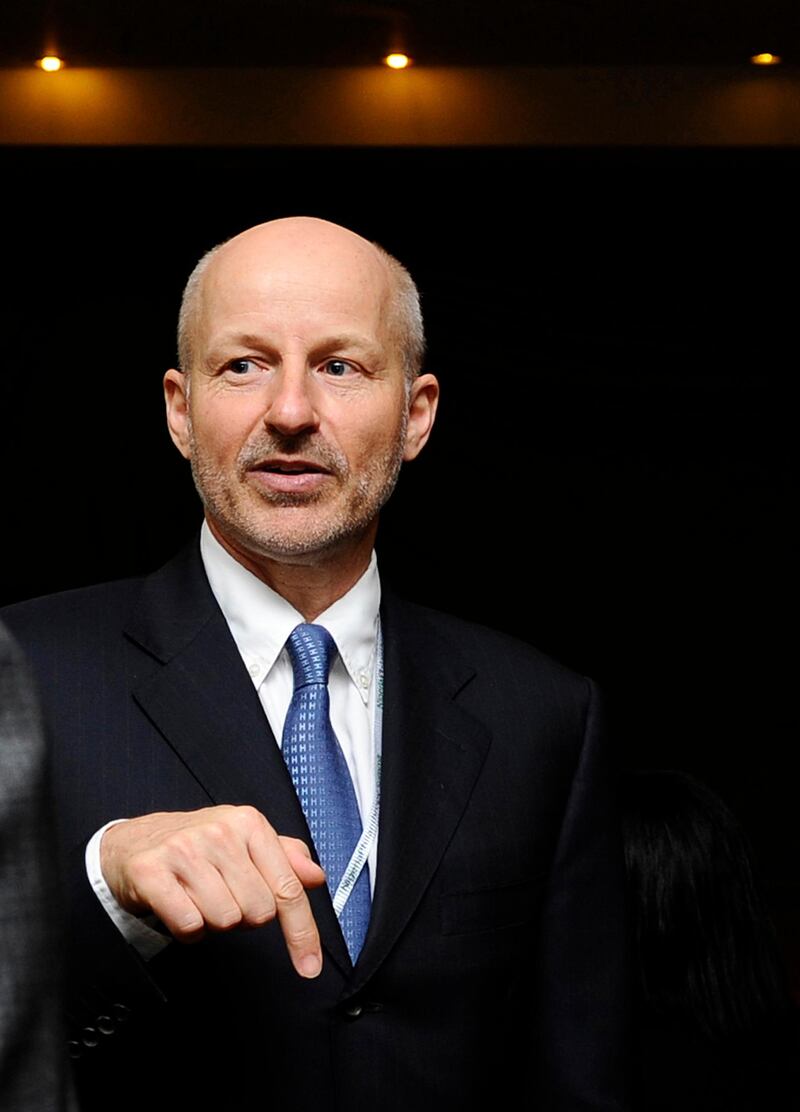The billionaire backer of a pro-Brexit think tank that has secured “unrivalled access” to ministers has been named in Parliament as a possible Russian intelligence agent.
Dubai-based businessman Christopher Chandler, who has provided financial backing to the Legatum Institute, was seen by French security officials as an “object of interest” because of suspicions he was working for the Russians, according to ruling party lawmaker Bob Seely, citing documents from 2005.
The Legatum Institute said the accusations were “complete nonsense” and that New Zealander Mr Chandler had “never been associated directly or indirectly with Russian intelligence of the Russian state”. It said that it had rebutted similar allegations in the past.
The claims appear to have been linked to Mr Chandler’s previous business activities in Russia in the 1990s. He was the founder of the investment company the Legatum Group which traded in the shares of Russian companies, including energy producer Gazprom.
Mr Seely said he was one of five lawmakers who had seen documents from a police department in Monaco that managed foreign residents in the area.
That information was based on information supplied by the French security service formerly known as the DST, he said. The documents had been authenticated by senior French, British and US intelligence sources familiar with their contents, Mr Seely claimed.
________________
Read more:
[ Malta considers expanding controversial cash-for-passport programme ]
[ Dubai-backed institute Legatum setting the tone for Brexit ]
________________
Mr Seely, a member of the Conservative party of Prime Minister Theresa May, was speaking during a debate about money laundering and sanctions policy. By making the allegations in parliament, he has a defence from defamation claims.
“I have been shown documents that we believe relate to our national security and money laundering,” Mr Seely told parliament. He said the documents were “brief, terse, factual files” detailing activities, associations and undisclosed “judicial actions”.
“According to the French security services, as recorded by their colleagues in Monaco… Mr Chandler is described as having been “an object of interest to the DST since 2002 on suspicion of…working for the Russian intelligence services.”
The Legatum Institute think tank is believed to have strong links to leading “Brexiteers” who strongly supported the campaign to leave the 28-nation bloc, including Boris Johnson, the Foreign Secretary, and Michael Gove, the Environment Secretary. The institute has previously said that it was a vocal public critic of Russia over many years.
Supporters of the campaign to remain within the European Union have previously raised questions about Legatum. Ben Bradshaw, an opposition lawmaker, last year urged the parliamentary intelligence committee to examine the relationship with the government and Mr Chandler.
In a series of tweets, the Institute rebutted the claims made by Mr Seely. “Neither Christopher Chandler nor anyone at Legatum is aware of any such alleged 'investigation' by French authorities, not 16 years ago or at any time since,” it said.
Christopher Chandler has never been associated directly or indirectly with Russian intelligence or the Russian state. Neither Christopher Chandler nor anyone at Legatum is aware of any such alleged “investigation” by French authorities, not 16 years ago or at any time since.
— Legatum (@Legatum) May 1, 2018
“To be clear, Christopher Chandler has never been approached at any time by the French or any other authorities regarding Russia and maintains a sterling record of ethical business practices earned over many decades.
“These accusations are complete nonsense, and have been previously rebutted by the Legatum Group.”
One of the other MPs who had seen the documents, Liam Byrne of the opposition Labour party, said that Legatum had “enjoyed unrivalled access to minsters in one of the most important national debates that we are considering in this country.
"And the risk, I put it no stronger than this, the risk that we are running at the moment is that this support is financed from sources that derive from the Russian republic and therefore it may be part of the panoply of active measures that have been drawn together since the re-election of President Putin in 2012,” he said.
The UK has blamed the Russian state for a poison attack on a former Russian spy on UK soil in March, which triggered a global response with the expulsion of dozens of Moscow’s diplomats.
The attack followed a series of warnings from the government about Russian cyber espionage and a claim by the Defence Secretary Gavin Williamson that attacks on the country’s critical infrastructure could lead to thousands of deaths.







